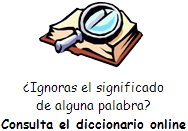What do these
six words have in common: hotdog, fireworks, well-being, waistline,
sunset and ice cream? They could all describe a fun holiday celebration.
For example:
My holiday was wonderful! I went to a friend’s party and we laughed, ate
and had a lovely time. We grilled hotdogs and made ice cream. Then,
after sunset, we all went down to the river to watch the fireworks. It
was a great time…but probably terrible for my waistline!
Great story! But what is the grammatical connection between all the
words we talked about? They are all compound nouns and that is our
subject today.
A compound noun is a noun made by putting two or more words together to
act as one noun. These nouns can be written as one word (as in fireworks
and waistline), as hyphenated words (as in well-being), or as separate
words (as in ice cream).
Compound nouns often have different meanings from their separate words.
For example, if you had never heard of a “hotdog,” you probably would
not know its meaning just from the words “hot” and “dog.” A hotdog is a
small cooked sausage usually made from beef or pork.
Making compound nouns
Compound nouns are often constructed from two parts of speech. The most
common are:
noun + noun, as in ice cream, waistline and fireworks, which you heard
earlier in the program
adjective + noun, as in hotdog and greenhouse.
Greenhouses at botanical gardens carry plants from around the world.
and noun + verb, as in sunset and rainfall.
The average yearly rainfall in Washington, DC is around 40 inches.
But, compound nouns are also formed in other ways, such as:
noun + preposition, as in passer-by
A passer-by witnessed the car accident on 17th Street.
gerund + noun, as in swimming pool and washing machine
I’m so glad that our hotel has a swimming pool!
adjective + verb, as in public speaking and dry cleaning
Can you call and see if the dry cleaning is ready?
verb + preposition, as in take-off and lookout
Flight attendants, please prepare for take-off.
and preposition + verb, as in output and overthrow.
The company increased output by extending its office hours.
Plurals and possessives
OK, moving on to plurals and possessives.
In most plural compound nouns, the -s goes at the end. But here’s a
little more to know:
If the compound noun has no space or does have a space in between words,
the -s usually goes at the end, such as in greenhouses, waistlines,
washing machines and swimming pools.
If the compound noun has a hyphen or hyphens, the -s usually goes at the
end of the noun, such as in secretaries-general, passers-by and fathers-in-law.
To make the possessive form, simply add an apostrophe -s to the end of
the complete word, such as in these examples:
My daughter-in-law’s dress is being made.
The dry cleaner’s number is on the table.
How to pronounce
Lastly, let’s talk about stress. In spoken language, stress is giving
greater loudness or force to part of a word. Correct stress is very
important for compound nouns.
We usually stress the first syllable. For instance, when I say the word
“fireworks,” I put greater loudness on “fire.” If I put the stress on “works,”
it changes the meaning and would confuse the listener.
Listen to more examples that stress the first syllable:
swimming pool
football
haircut
bedroom
take-off
ice cream
And, just for fun, here’s an old – but still popular – song about ice
cream:
I scream
You scream
We all scream for ice cream!
Not all compound nouns follow the rule of first syllable stress. Proper
nouns that are more than one word are considered compound nouns and they
usually carry the stress at the start of the second word.
Listen for the stress in these proper nouns:
New Orleans
Las Vegas
Mount Rainier
Grand Canyon
South Africa
New Zealand
Secretary-General
Prime Minister
By now in your English studies, you’ve already used many compound nouns.
And, surely, you’ll use many more. So, practice ones that are useful to
you in speaking and writing! You can use a good dictionary to check how
we say and write them. |
 Sugerencias:
Sugerencias:![]() ). Utiliza el botón derecho del ratón y "guardar enlace" para
descargar el fichero a tu PC, tablet, Smartphone, etc.
). Utiliza el botón derecho del ratón y "guardar enlace" para
descargar el fichero a tu PC, tablet, Smartphone, etc.
![]() Escucha el audio
Escucha el audio
![]() ¿Quieres recibir en tu e-mail gratis y
periódicamente ejercicios, programas gratuitos, explicaciones y otros recursos
para mantener tu inglés sin esfuerzo? Apúntate a nuestro
cuaderno mensual de inglés.
¿Quieres recibir en tu e-mail gratis y
periódicamente ejercicios, programas gratuitos, explicaciones y otros recursos
para mantener tu inglés sin esfuerzo? Apúntate a nuestro
cuaderno mensual de inglés.




